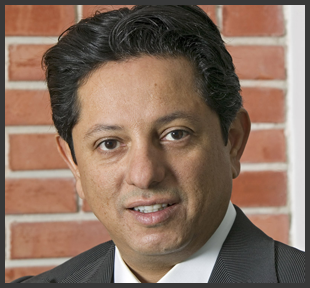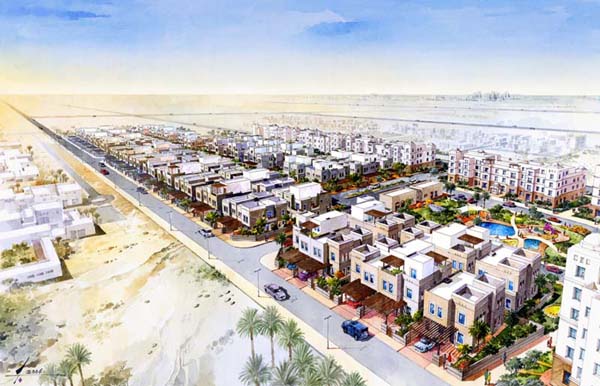Kuwait Real Estate Market: One of the Most Challenging Markets in the Gulf
The demand for middle income Kuwait real estate will remain high, according to Alargan’s Khaled Al-Mashaan: “We have the highest growth in population in the world and most of the population is under 25 years old (60%) so the influx of young people coming into the market will be huge for jobs and housing. “
Together with China, the Arab gulf countries struggle for a world record. The criterion is: “who is operating more cranes at construction sites”. While Kuwait’s sister city Dubai was overdoing it a bit, Kuwait took a more careful approach during the oil boom from 2004 to 2008. The building boom started after the fall of Saddam Hussein’s regime in Iraq in March 2003.
But then the crisis came. The sub-prime crisis and the fall of Lehman Brothers affected every country. In Kuwait, although the total value of Kuwait real estate transactions declined to 6.7 billion dollars in 2008, a fall of around 33% compared to 2007, it was still slightly higher than 2006.
“When we look at Kuwait you notice that since the global economic downturn, and as a result of the recent legislation enacted by the parliament, there has been a noticeable effect on certain sectors in the Kuwait real estate market”,
explains Khaled Al-Mashaan, CEO of Alargan International Real Estate Company. “The most affected was the residential sector due to earlier legislation preventing homebuyers from obtaining home loans.” 
For Rawaf Bourisli, Chairman and General Manager of Kuwait Dynamics and Action Real Estate, the aforementioned figures are not only a result of the Lehman & Co. debacle.
“The decline is mainly due to a regulation issued by the government in 2008 which banned companies and institutions from developing private real estate areas for housing. This segment then left the market and this explains the decline”, explains Bourisli
Khaled Al-Mashaan makes no secret about his attitude for the short-term future:
“I think the status quo will remain the same. As long as companies pay their interest on the debt they will be kept where they are.”
Bourisli, on the other hand, is bullish about Kuwait’s future. In February Kuwait’s parliament passed an economic development plan that authorizes the government to spend around 104 billion dollars on mega projects within the next four years.
“We are going to participate”, promises Bourisli and we are creating the infrastructure required for that plan currently. I think it is a very ambitious Kuwait economic plan but I think that all sectors needed this plan.”
Then why do clients opt for Kuwait Dynamics and Action Real Estate?
Rawaf Bourisli: “We develop on time, on cost, and with great quality. We are experienced and provide a fullly integrated solution where everything is under one umbrella for our clients needs. It is like a one stop shop. We are timely, cost effective, and deliver great quality to our clients.”
In order to topple speculation, the Kuwait government issued laws number 8 and 9 which restricted lending.
This move proved to be major burden to the badly hit construction and Kuwait real estate market. “I believe that these laws were a mistake,” states Bourisli. The goal of the regulation was to stop speculation in private real estate because they directly affect people and housing. However, it did not succeed in this segment, it just took large players out of the development scheme (companies and institutions) and this didn’t help.
This is a demand and supply issue and the laws did not help to meet the benchmark. There is a limitation on land within Kuwait that causes problems.” The Public Authority for Housing and Welfare, which guarantees housing for Kuwaiti nationals had over 90,000 applications pending in October 2009.“
The demand will remain high, according to Alargan’s Mashaan: “We have the highest growth in population in the world and most of the population is under 25 years old (60%) so the influx of young people coming into the market will be huge for jobs and housing. “
On the other hand, Chairman and CEO Bourisli hails the country’s advance to upgrade its oil industry: “As far as construction is concerned we are participating in bids with Kuwait Oil Company and Kuwait National Petroleum Company and I think we are going to be happy and land a contract soon.” Alargan’s CEO Mashaan meanwhile focuses on Kuwait’s “big brother”, the Kingdom of Saudi Arabia. “In Saudi Arabia we have an ongoing project of 500 units in Riyadh with a component of two vertical developments that could reach 1000 units”, he points out.